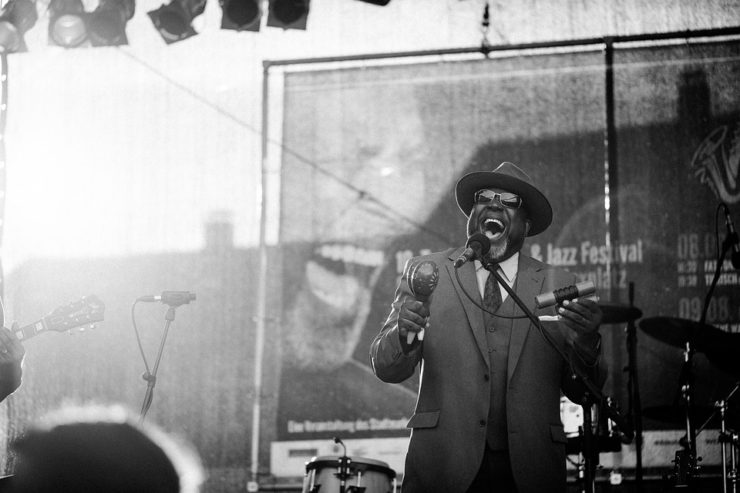Black Music Month (or African-American Music Appreciation Month) has been celebrated during the month of June for 40 years. It was created at a time when Black music was emerging as the dominant genre around the world. It was the post-Civil Rights era and the height of the Black Power and Pan African movements, when Black Americans were more aware than ever of the value of their voices, spending power, and influence. The month was conceived by a group of Black music executives who sought to celebrate the legacy of Black music and encourage the mobilization of Black economic power.
The group convinced President Jimmy Carter to host a reception on June 7, 1979, to formally recognize the cultural and financial contributions of Black music. 30 years later, then-President Barack Obama declared June as African American Music Appreciation Month, marking the start of summer as a celebration for the Black “musicians, composers, singers, and songwriters [who] have made enormous contributions to our culture.”
Black music is at the heart of American music and behind every genre are the early Black musicians who helped tune our ears to new frequencies. On this 40th Anniversary of Black Music Month, we thought it appropriate to celebrate the Black pioneers who birthed our favorite genres into being:
Muddy Waters
Often referred to as the “Father of Modern Chicago Blues,” Muddy Waters grew up on a plantation near Clarksdale, Mississippi and discovered his love of music while singing in his Baptist church choir as a kid. By the time he was 17, he had mastered the harmonica and bought his first guitar. In 1941, Alan Lomax recorded Muddy Waters in his home on behalf of the Library of Congress. Soon after, he moved to Chicago where he became a stalwart in the city’s early blues scene.
Muddy’s best-known recordings include “Hoochie Coochie Man“, “I Just Want to Make Love to You“, and “I’m Ready“. His song “Rollin’ Stone” inspired the name of famous rock and roll band The Rolling Stones.
Sister Rosetta Tharpe
Sister Rosetta Tharpe rose to popularity with gospel-inspired recordings that teased the first hints of rock and roll with heavy distortions on the electric guitar. She’s known as the “Godmother of Rock and Roll,” and inspired musicians like Elvis Presley, Johnny Cash, Chuck Berry, as well as British rock acts like Eric Clapton and Keith Richards. Despite this authority, Sharp was only inducted into the Rock and Roll Hall of Fame in 2017, and her legacy is not widely known.
“Strange Things Happening Every Day” is the perfect track to acquaint yourself with Tharpe’s unique style and skill and her take on “Silent Night” will make you rethink your position on holiday music.
Bo Diddley
Bo Diddley is one of the musicians responsible for building a bridge from blues to rock and roll. He blended African rhythms with the five-accent hambone rhythm that has since become a signature beat within pop music. He is known as “The Originator” and has influenced acts like The Beatles, Elvis Presley, and The Clash.
“Sixteen Tons” is the track that Diddley performed on The Ed Sullivan Show, but it’s his self-titled track “Bo Diddley” that earned him the #1 spot on the R&B charts.
Bessie Smith
Nicknamed the “Empress of the Blues,” Bessie Smith was a huge influence on both modern blues and jazz music. Orphaned when both parents died in her early childhood, Smith got her start in music busking on the streets of Chattanooga, Tennessee, which is how she and her brother helped provide for the family. At first dismissed by Black record labels for her “rough” sound, Smith went on to become the highest paid Black entertainer of her time.
Bessie Smith’s is noteworthy for her lyrical content, which spoke on themes of racial unrest and female sexuality. “Down Hearted Blues” and “Gulf Coast Blues” earned her top spots in the pop charts.
Dizzy Gillepsie
Trumpet virtuoso Dizzy Gillepsie taught and influenced the greatest names in jazz, among them Miles Davis, Fats Navarro, and Clifford Brown. Gillepsie grew up in a musical household and began playing the piano by age 4. He famously played in bands with Cab Calloway and Ella Fitzgerald and helped develop the Afro-Cuban jazz style.
Gillespie’s musical catalog is massive, his “Afro” and “Bird and Diz” albums are some of his most celebrated works.
